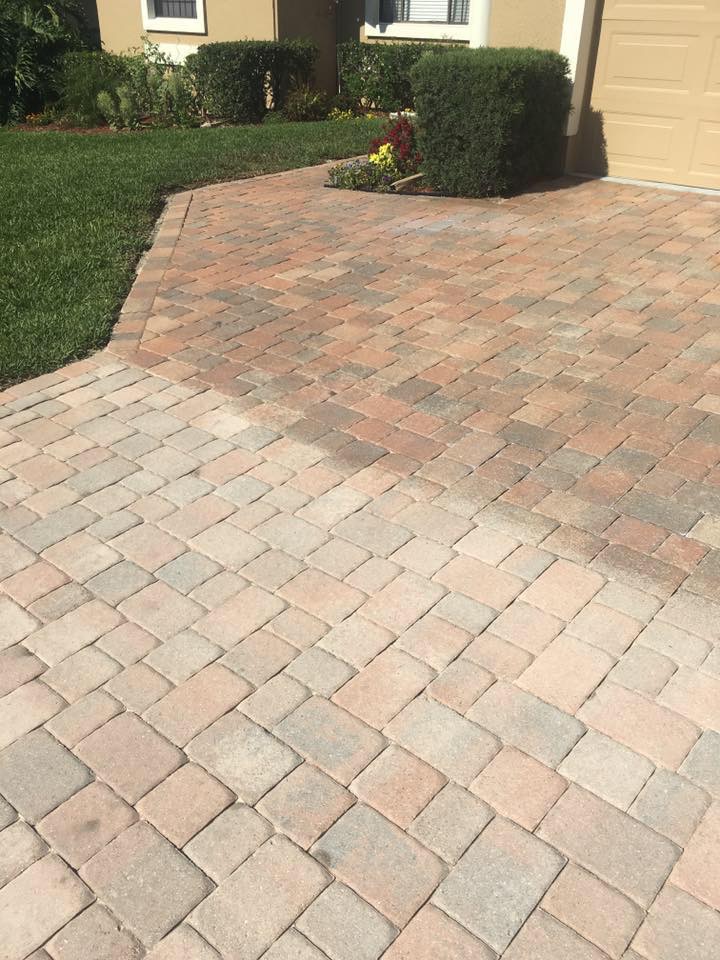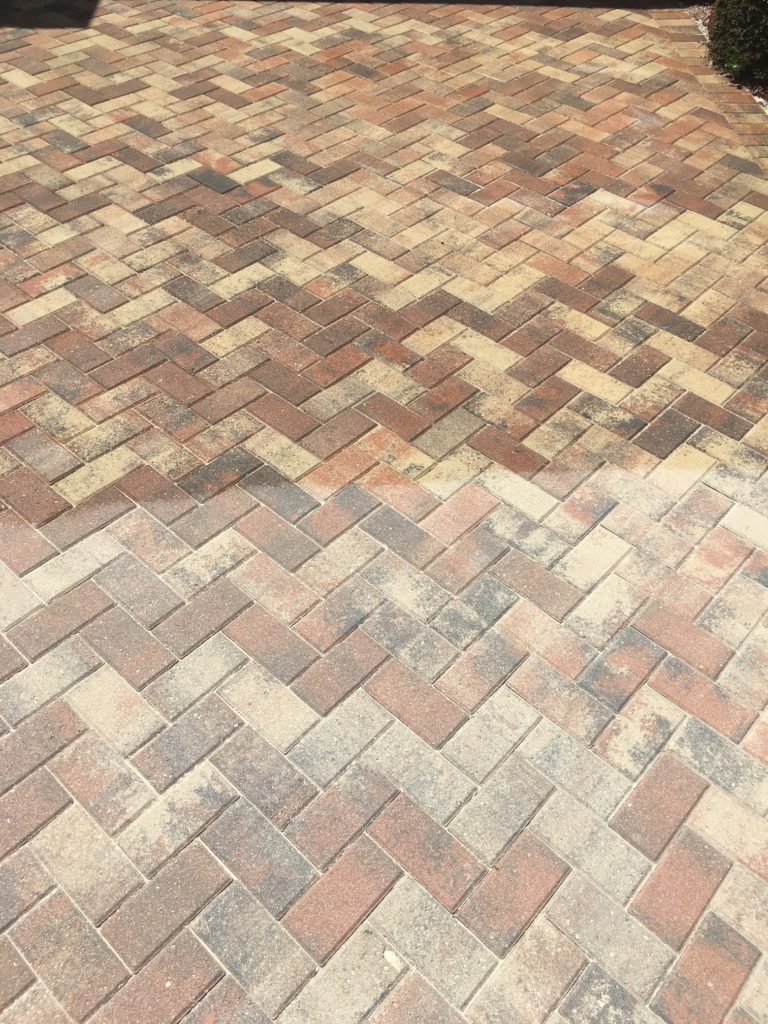Some Of Paver Sealing Lakeland Fl
Table of ContentsA Biased View of Paver Sealing Lakeland FlPaver Sealing Lakeland Fl Things To Know Before You BuyPaver Sealing Lakeland Fl for DummiesThe smart Trick of Paver Sealing Lakeland Fl That Nobody is DiscussingThe Buzz on Paver Sealing Lakeland FlWhat Does Paver Sealing Lakeland Fl Mean?Getting My Paver Sealing Lakeland Fl To WorkGetting My Paver Sealing Lakeland Fl To Work
Last Upgraded: October 31, 2020 Pavers may be brick, natural cut stone, or some other rock product and are typically utilized to develop courses, driveways, or outdoor patios. To make them last longer and look fantastic, it's an excellent idea to seal them. The process includes selecting the best sealer for your stone and to attain your function in sealing the pavers." Do I require to seal my pavers?" The short response is. is an important maintenance tool to keep paver outdoor patios, sidewalks, driveways and swimming pool decks looking as gorgeous as they day they were set up. Nevertheless, "too much of a good thing" can enter play, and you need to be wary of over-applying paver sealant by reapplying too often, which could create a haze (Paver Sealing Lakeland FL).
Fascination About Paver Sealing Lakeland Fl
Yes. Concrete is porous and will absorb stains if not sealed. Sealants can also safeguard paver color from fading - Paver Sealing Lakeland FL. There are absolutely some poor paver sealing products on the marketplace. Don't rely on the truth that you purchased it at a huge box shop or that it's a high-profile brand name. Even if a brand is proficient at one product classification (like paint) doesn't imply they are the finest in another.
When it comes paver sealant, Techniseal is a pioneer in the industry has a robust R&D department, leading to effective and durable products particularly produced for paver setup and maintenance. Paver Sealing Lakeland FL. There are generally two types of paver sealants: film-forming (gloss or semi-gloss finish) and non-film-forming (matte surface). Film-forming sealants, such as Wet Look and Clear Look, offer the ultimate protection because they create a physical barrier on the paver surface.
Rumored Buzz on Paver Sealing Lakeland Fl
If utilizing a non-film-forming paver sealant, wait one week prior to sealing. If using a film-forming sealant, wait thirty days to prevent trapping wetness under the protective barrier. Even new pavers need to be cleaned up with Techniseal Paver Preparation prior to sealing. Not just will it clean the pavers, but it will open the pores on the surface area to allow much better penetration of the sealant.
Any stains need to be eliminated prior to using Paver Preparation, utilizing the particular stain cleaner for the type of stain. For more info, checked out recently's blog on paver stain elimination. The answer depends upon your environment. In warm, warm environments, the pavers will be dry and all set to seal in a couple of hours.
Paver Sealing Lakeland Fl Fundamentals Explained
Suitable conditions would be 75 degrees and sunny; however, anywhere in between 50-90 degrees is usually great. Remember that solvent-based sealants vaporize quicker, so lower temperatures are much better for application. The fundamental rule of thumb is every 3-5 years. For film-forming sealants, you will have the ability to notice when the physical barrier is revealing indications of wear.
Remember that in cases of a really heavy rain, even well-sealed pavers might darken for a number of days up until the water completely vaporizes, which is index not an indicator of sealant failure. Like with painting, it's finest to keep a wet edge on a constant area. In other words, don't let an area dry before you finish.
The Best Guide To Paver Sealing Lakeland Fl
An application sprayer (readily available at any hardware shop) makes it simpler to work much faster. Apply paver sealant to saturation. Get the pavers good and damp to go ensure all crevices are covered. Then use a dry roller to take in the excess to avoid lines and drip marks. Constantly follow the maker's guidelines.
There are lots of benefits to sealing pavers, however it's not definitely required. It truly depends on your expectations of pavers and how long you would like them to look fantastic. Pavers that aren't sealed will be more likely to grow weeds in the joints, they will fade and loose their color from wear and UV breakdown, and because the majority of newer paver sealers include an additive that will solidify the joint sand it is less likely that you will have settling or shifting caused by joint sand loss.
The Paver Sealing Lakeland Fl Ideas

Sealing can likewise protect your pavers from anything foreign that might fall on them staining from oil, leaves, spills. Sealing creates an unnoticeable layer on top of your pavers that wards off water, oil and anything else you may unintentionally drop, as long as you wash it away as soon as you discover it.
The Greatest Guide To Paver Sealing Lakeland Fl

Both of these cases are wrong and probably impossible. Weeds in pavers almost always originated from seeds being blow in and transferred into the sand joint from neighboring weeds. If you have a lot of weeds in your backyard or landscape beds than its practically a warranty that you will have weeds in your pavers.
Not known Factual Statements About Paver Sealing Lakeland Fl
If you see sinking areas or your pavers shifting, opportunities are its not a result of your pavers not being sealed. It's more than likely a result of poor base installation or edge restraint failure. That being said, another leading cause of pavers moving around is the lack of sand in the paver joint.
When that sand goes away, there are little areas between each my website paver permitting them to move because they're no longer tight. If you were to seal your pavers with a joint stabilizing sealer, it would prevent sand loss which in turn could prevent your pavers from settling or shifting.